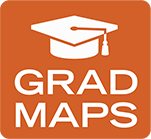| |
Feb 02, 2026
|
|
|
|
|
2022-23 Catalog ARCHIVED CATALOG: Content may no longer be accurate.
Business and Economics (AS)
|
|
- Program Description: The Associate of Science (AS) degree in Business and Economics provides foundational skills and knowledge in accounting, economics, statistics, management information systems, as well as other functional business areas of the students’ choice. This skill- and knowledge set will make students more effective business professionals as it introduces communication and analysis tools critical in a professional business environment.
- Grade Requirements: Even though a minimum grade of “C-” will be accepted in courses used to satisfy the associate’s degree requirements, an overall GPA of 2.5 or higher is required.
- Credit Hour Requirements: A total of 60 credit hours is required; a minimum of 20 of these is required in residence (for transfer students).
- Program Code: 4041AS
- CIPC: 520601
Advisement
Advisement is strongly encouraged for all Goddard School majors and minors. See more information on available advising resources in the John B. Goddard School of Business & Economics section of this catalog.
 Use Grad MAPs to plan your degree Use Grad MAPs to plan your degree
Admission Requirements
Acceptance to the John B. Goddard School of Business & Economics is required for all business majors, minors, emphases and certificates. To be admitted, students must register for BSAD 2899 . Students may obtain information regarding admissions from the Goddard School Advising Center, WB 211, (801) 626-6534.
General Education
Refer to Degree Requirements for Associate of Science requirements. The following courses required for the Business and Economics associates will also satisfy general education requirements: ENGL 2010 or ENGL 2015 (Composition); MATH 1050 or MATH 1090 (Quantitative Literacy); ECON 2010 or ECON 2020 (Social Science); ECON 1740 is recommended to fulfill the Senate Bill Requirement in American Institutions.
Program Learning Outcomes
- Be numerically literate.
- Be able to use the concepts of supply and demand to analyze current economic issues.
- Be able to use the aggregate demand/aggregate supply framework.
- Understand the professional role played by accountants in society
- Effectively utilize the accounting cycle
|
Major Course Requirements for AS Degree
Courses Required (26 credit hours)
|
|
|